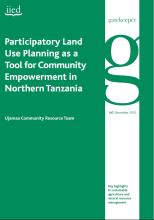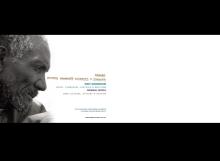Land Library
Welcome to the Land Portal Library. Explore our vast collection of open-access resources (over 74,000) including reports, journal articles, research papers, peer-reviewed publications, legal documents, videos and much more.
/ library resources
Showing items 1 through 8 of 8.This report summarizes a case study of the Mexican ejidocommunity tenure system. Mexico was selected for this case study because of the rich history and extensive scale of the country’s community land tenure and registration systems.
Communal lands are central to the livelihoods of many Tanzanians, particularly to pastoralists and hunter-gatherer groups. But a number of factors can undermine the security of these lands remaining ‘communal,’ in turn threatening the livelihoods of many people and cultures.
The first draft of the Tanzanian constitution incorporates many provisions that will improve the rights and interests of pastoralists, huntergatherers and women in these communities.
In northern Tanzania, new grassroots groups called Women’s Rights and Leadership Forums (WRLFs) are mobilizing women and men in pastoralist communities to promote and defend local land rights.
This chapter addresses issues related to securing access and rights to resources, and gaining benefits from the resource within the context of one community-based initiative in the village of Ololosokwan in Tanzania.
This paper presents several case studies to show how the Ujamaa Community Resource Team (UCRT) has been working within Tanzania’s legal and policy framework to support a diverse range of pastoralists, agro-pastoralists and hunter-gatherers, all of whom face fundamental threats from external appro
This publication on Secure Land Rights for All demonstrates how secure land rights are particularly important in helping to reverse three types of phenomena: gender discrimination; social exclusion of vulnerable groups; and wider social and economic inequalities linked to inequitable and insecure
The Hadzabe community of the Yaida Valley requested UCRT to assist them to undertake a cultural mapping exercise.








